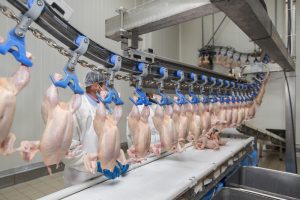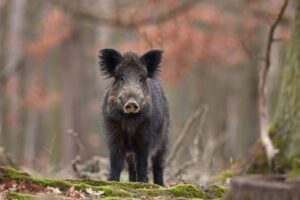Hilton Food Group among the speakers to address Meat Business Women Conference
Steve Murrells, CEO, Hilton Food Group, Ruth McDonald, Corporate Services Director, Morrisons and Jane Treasure, Food & Beverage Director, Pizza Express have been announced as the keynote speakers at the UK & Ireland Meat Business Women conference in May 2024.
The conference, taking place at NatWest, Bishopsgate London on Wednesday, May 22 will be themed around ‘The Power of Us.’ Speakers will share their insights into how they see the meat and food industry evolving over the next five years, including key challenges, and opportunities for their respective sectors. They’ll also be providing delegates with key learnings from their personal career journeys and on the conference theme, including insights into mentoring, industry collaboration, allyship at work and how delegates can support one another’s’ career progression.
Matthew Stoughton-Harris, Economics and Public Policy Manager, IGD will also give an update on market and consumer trends.

Delegates will also hear from leaders outside of the food industry, in a panel themed on ‘The Power of Collective Change.’ The panel will feature change-makers Zara Mohammed, Secretary-General of the Muslim Council of Britain, Kate Stephens, CEO of Smartworks Charity, Angela Owen OBE, Founder, Women in Defence UK and Sharniya Ferdinand, Enterprise Community Strategy Director, NatWest. All panelists will share their stories of leadership in order for delegates to gain different perspectives to take forward to their day to day roles.
In response to the findings of the 2023 Gender Representation Report on the importance of allyship in progressing gender equality in the workplace, a new panel discussion will take place themed on ‘Allyship in Action’ featuring Craig Tomkinson, Chief Finance Officer, 2 Sisters Food Group, Richard Phelps, Agriculture Director, ABP Food Group, Nicola Washington, Head of Food Safety & Quality, Cranswick plc, Ian Lindsay, Managing Director, Smithfield Foods and will be chaired by Andrea Jex, Procurement Director, Hilton Foods.
Delegates will also have the chance to take part in a dedicated personal development and networking session in the afternoon to workshop the themes of the day and build business connections.
In order to ensure the conference is accessible for all, it will also be livestreamed, allowing for delegates who are not able to attend in person, to access and take part in the morning sessions and keynote speakers.
In person tickets are now sold out, but a waiting list is in operation. Virtual tickets are available to buy individually, or as a group.
Meat Business Women is grateful to MorePeople for sponsoring the lunch, and to NatWest for providing the conference venue.
See also:
Meat Business Women Announces New Territory Partner For Australia




